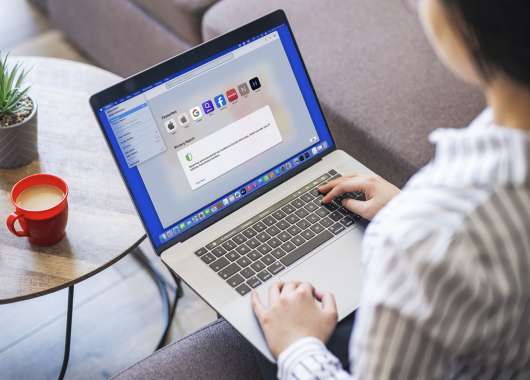Whether you’re looking for health information, or shopping for a surprise present for a loved one, there are times when you don’t want your Internet browsing to be tracked. And this is where the Chrome Incognito browser mode is supposed to help.
Incognito does not mean what you think
According to the dictionary, incognito is an adjective that means “having one’s true identity concealed”. Or more simply, no one can tell who you are.
But when it comes to the Chrome web browser, incognito mode is a lot less secretive than you would expect. Despite claiming to allow you to browse in private, you can – and will – be identified as you surf the web using Incognito mode.
Advertisers know who you are
When you open an Incognito browser tab, Chrome displays a message, “Now you can browse privately, and other people who use this device won’t see your activity.” This would tend to suggest that no one can see what you are looking at.
But the reality is that Incognito offers no protection at all from website operators and advertisers. Anything you search will still be saved against your Google profile for instance. And various advertising trackers will continue to track you across the web, adding your “secret” activity to what they already know about you.
Advertisers know where you are
Advertisers also use a technology known as ‘geolocation’ to figure out where you are. They use this information to show you ads for products and services in your local area, especially when using your mobile phone. But sometimes this can feel intrusive.
Again, Incognito does nothing to hide location data. So advertisers still know where you are – and they save that information to your advertising profile too.
Malware can still get through
Another common misconception is that browsing incognito protects your computer from malware and viruses. And again, this is completely untrue.
Incognito mode doesn’t provide any additional security protections. If malware can install through your browser in “regular” mode, it will have no problem as you browse privately either. The only way to avoid virus infections is using a dedicated antimalware tool like Panda Dome.
What is Incognito mode for?
At this point you’re probably wondering what Chrome Incognito mode is actually for – but it does have one helpful function. Private browsing is designed to protect your privacy at home.
When browsing in normal mode, your browser records a complete history of every website you visit. It also collects various cookies and images that are stored on your computer to help make webpages load more quickly, or to remember passwords and logins. Anyone with access to your computer can use this information to reveal your secret browsing habits.
When surfing in Incognito mode, these cookies and temporary files are automatically removed; the web browsing history is also deleted when you close the browser. This prevents anyone being able to check up on what you have been doing on your computer.
So even though online advertisers know exactly what you’ve been looking at online, your partner’s birthday present will still be a surprise – for them.





